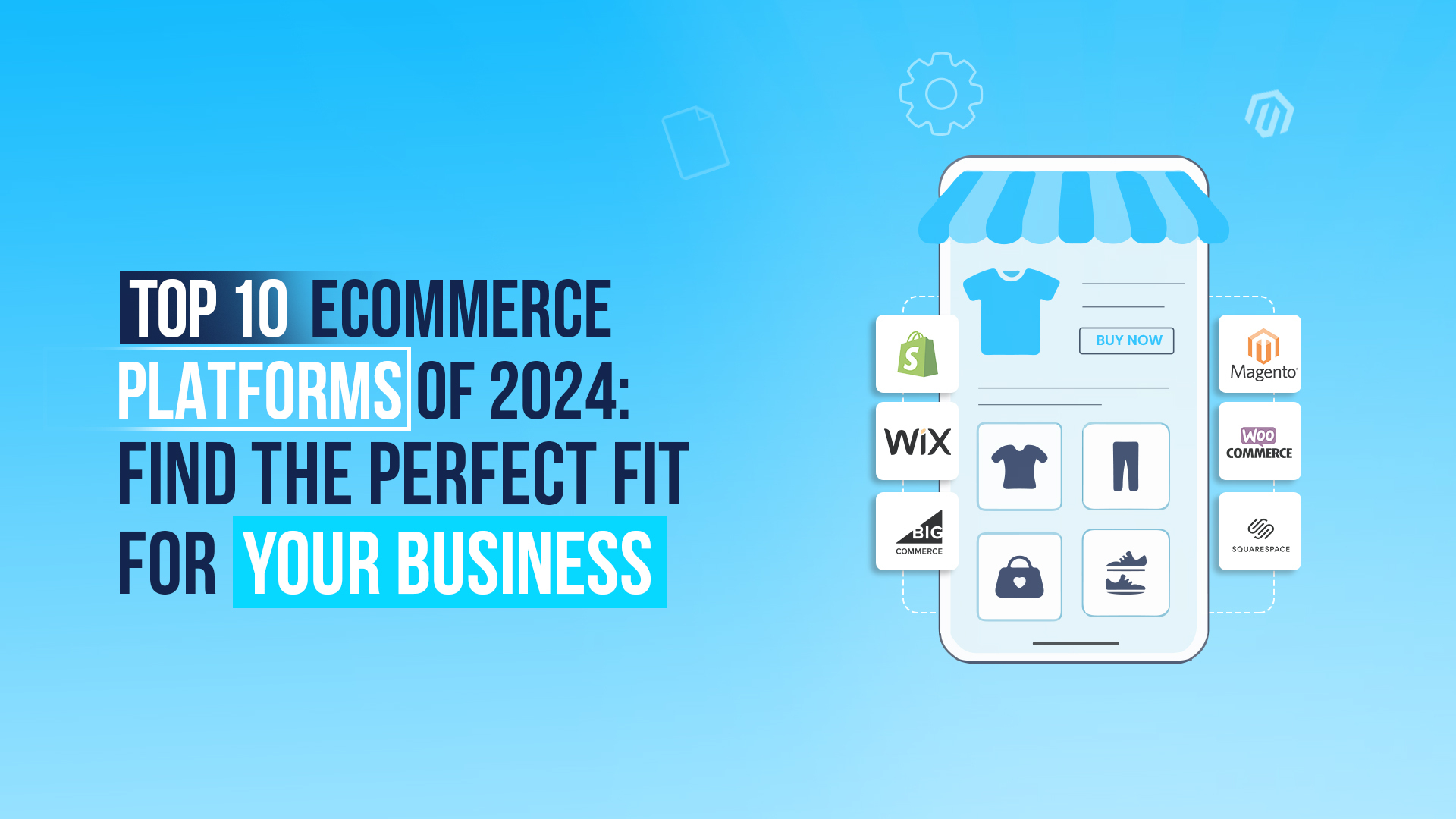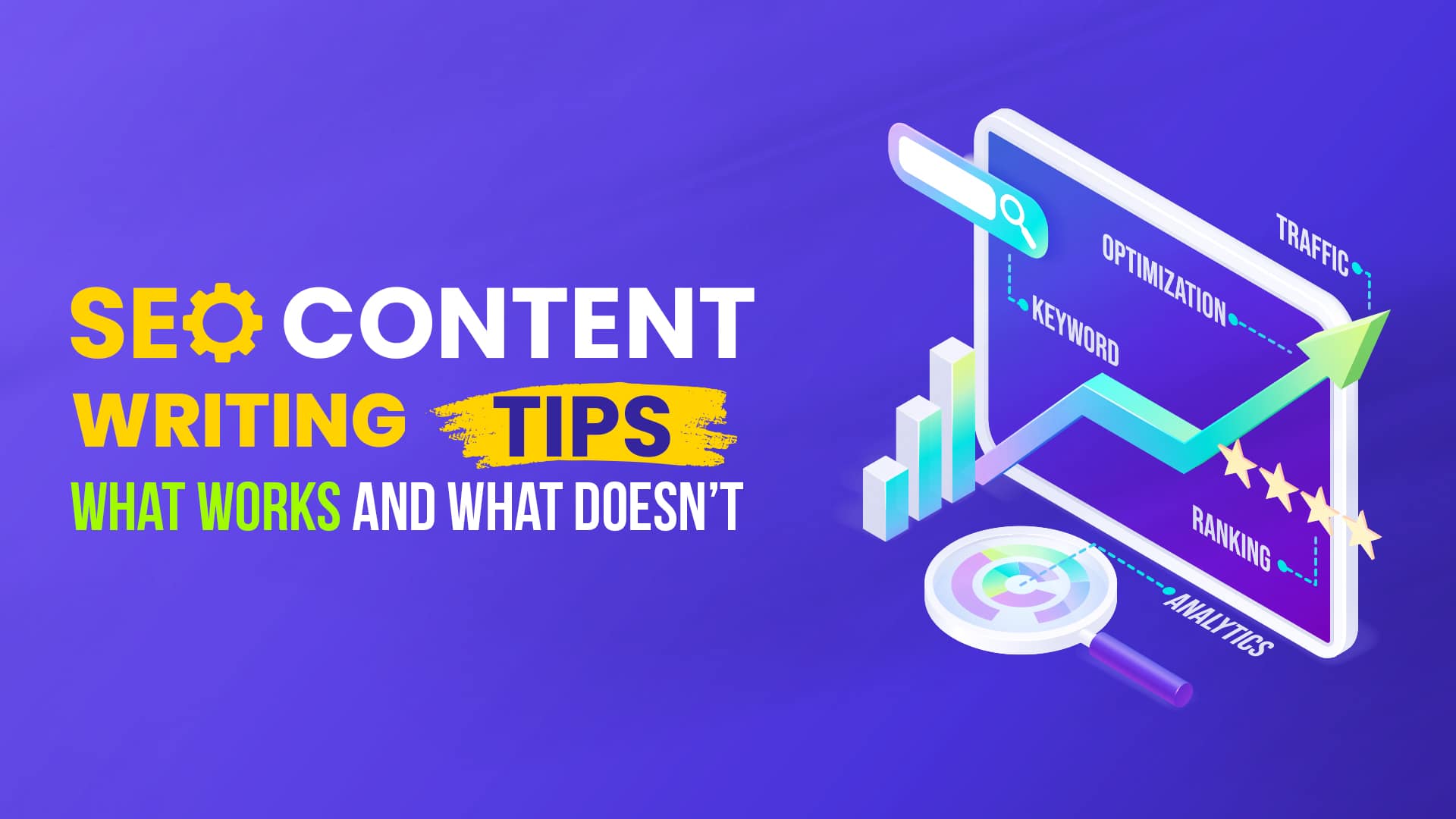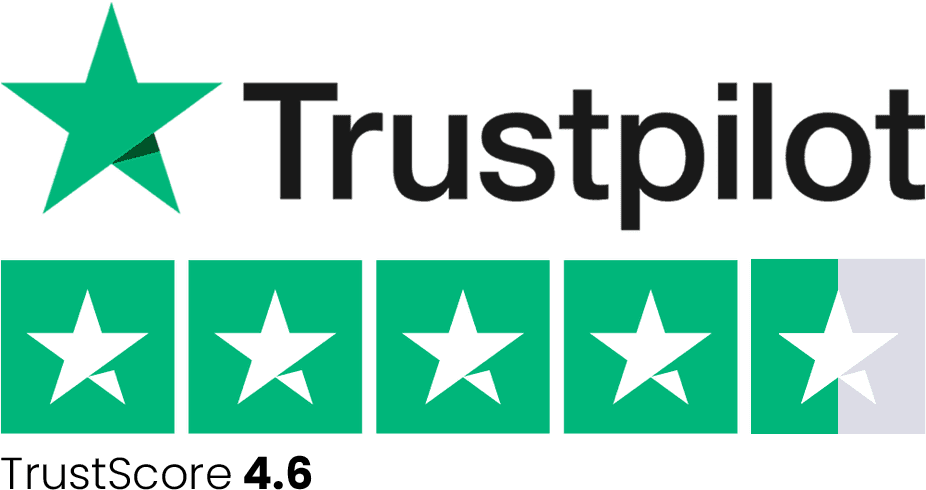Selecting the right eCommerce platform is crucial for your online business’s success in 2024. With the digital landscape constantly evolving, it’s vital to choose a platform that aligns with your business goals, offering the flexibility, features, and scalability you need. Whether you’re starting a new online store or upgrading to a more robust solution, understanding the strengths and weaknesses of top eCommerce platforms can guide your decision.
In this guide, we’ll review the best eCommerce platforms of 2024, focusing on their key features, ease of use, customization options, scalability, and cost. From affordable and user-friendly solutions for small businesses to powerful, scalable platforms for enterprises, we’ll help you find the perfect fit for your needs. By the end, you’ll be well-equipped to make an informed choice and succeed in the competitive world of eCommerce.
How to Evaluate eCommerce Platforms
When choosing the best eCommerce platform for your business, it’s essential to evaluate each option carefully. The right platform can significantly impact your online success, so understanding the key criteria for evaluation is crucial. Here are the core factors to consider when assessing eCommerce platforms in 2024:
a. Ease of Use
The ease of use is a fundamental factor, especially if you’re new to setting up an online store. A platform with an intuitive user interface and a minimal learning curve allows you to get your store up and running quickly. Look for platforms that offer robust customer support options, such as live chat, tutorials, and community forums, to assist you whenever needed.
b. Customization
Your business is unique, and your eCommerce platform should reflect that. Evaluate the design options available, including themes and templates that match your brand’s identity. Additionally, consider whether the platform supports plugins and extensions to add extra features. The ability to customize with custom code is also vital for businesses with specific requirements, making it easier to tailor the platform to your needs.
c. Features
A platform’s features determine how well it will support your business operations. Look for comprehensive product management tools that simplify inventory and product details. Effective order management systems should allow easy tracking and processing of orders. Evaluate the payment options supported by the platform, ensuring it integrates with popular payment gateways. Also, consider how the platform handles shipping and tax calculations, as these are crucial for smooth operations.
d. Scalability
As your business grows, your eCommerce platform should be able to grow with you. Evaluate the platform’s performance under high traffic and large inventories. Scalability is vital for ensuring your online store can handle increased demand without compromising on speed or user experience. Consider platforms that are designed to scale seamlessly with your business, avoiding the need for costly migrations in the future.
e. Cost
Understanding the pricing models of different eCommerce platforms is crucial for budgeting. Some platforms offer transparent pricing, while others might have hidden fees for additional features or transactions. Evaluate the total cost of ownership, including any hidden fees that might arise, to ensure the platform fits within your budget.
f. SEO and Marketing Tools
A platform’s built-in SEO features play a crucial role in enhancing your store’s visibility in search engines. Look for platforms that offer strong SEO tools, such as customizable meta tags, SEO-friendly URLs, and easy-to-manage sitemaps. Marketing integrations are also essential, allowing you to connect with tools like email marketing services and social media platforms. Additionally, platforms with conversion optimization features can help you turn visitors into customers, boosting your sales.
g. Support
Reliable support is critical when issues arise. Evaluate the availability of documentation, including comprehensive guides and tutorials, which can help you troubleshoot problems independently. Also, consider the size and activity of the platform’s community. An active user community can be an invaluable resource for advice, tips, and solutions to common problems.
Top 10 eCommerce Platforms of 2024
As the eCommerce landscape continues to evolve, selecting the right platform is crucial to your business’s success. In 2024, the top eCommerce platforms are distinguished by their features, ease of use, customization options, and scalability. Here’s an in-depth look at the top 10 platforms.
Shopify
Shopify remains a powerhouse in the eCommerce world, consistently ranking as one of the top eCommerce platforms for businesses of all sizes. Known for its user-friendly interface, Shopify allows even beginners to set up and manage an online store with ease.
Strengths:
Ease of Use: Shopify is designed with the user in mind, offering an intuitive dashboard that simplifies the process of managing products, orders, and customers.
‒Extensive App Marketplace: With over 8,000 apps available, Shopify’s marketplace allows businesses to easily extend their store’s functionality. Whether you need advanced marketing tools, inventory management systems, or customer service solutions, there’s likely an app for that.
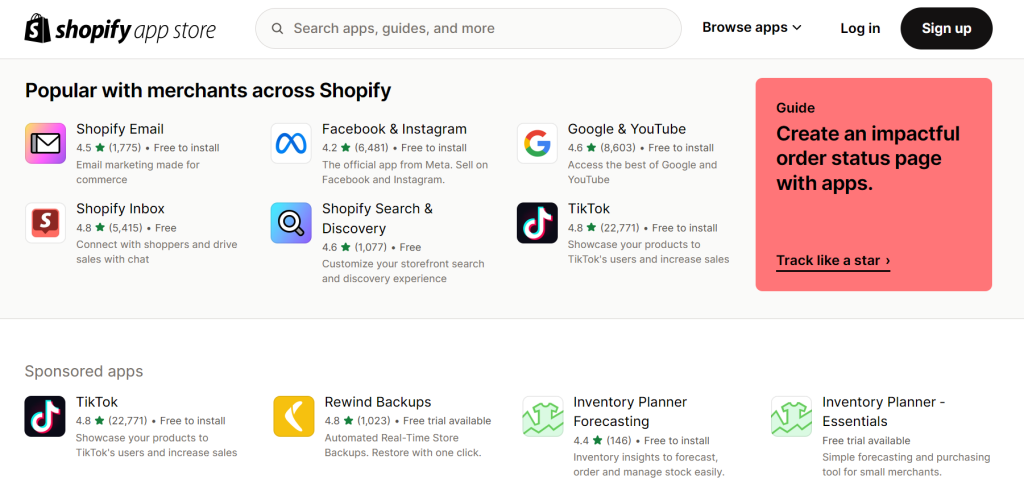
Reliable Support: Shopify offers 24/7 customer support via chat, email, and phone, ensuring that help is always available when you need it.
Weaknesses:
‒Higher Fees: While Shopify offers competitive pricing, additional fees can add up, especially if you opt not to use Shopify Payments, their integrated payment gateway. Transaction fees for external payment gateways can impact profitability.
Key Features:
‒Shopify Payments: Avoid extra transaction fees by using Shopify Payments, which integrates seamlessly with your store and supports multiple currencies, making it an excellent choice for international eCommerce.
‒Integrated Shipping: Shopify’s shipping features allow you to manage everything from order tracking to discounted shipping rates, simplifying logistics.
‒Robust Analytics: Shopify offers advanced analytics and reporting tools, giving you insights into customer behavior, sales trends, and marketing performance.
Best For: Businesses of all sizes, from startups to large enterprises, due to its powerful tools and flexibility.
BigCommerce
BigCommerce is one of the most comprehensive eCommerce platforms available in 2024, offering a robust suite of features that cater to both small businesses and large enterprises. Known for its flexibility, scalability, and built-in SEO capabilities, BigCommerce is a great solution for businesses looking to grow and expand their online presence.
Strengths:
‒Comprehensive Features: BigCommerce comes with a wide range of built-in features, including multi-channel selling, advanced SEO tools, and customizable product catalogs. This eliminates the need for additional plugins, making it an all-in-one solution for eCommerce.
‒Strong SEO: With features like customizable URLs, metadata, and built-in sitemaps, BigCommerce is designed to help businesses improve their search engine rankings. The platform’s focus on SEO makes it an excellent choice for businesses aiming to boost their organic traffic.
‒Scalable for Growth: BigCommerce is highly scalable, making it a perfect fit for businesses looking to grow. Whether you’re managing a small online store or a large enterprise, BigCommerce can handle high traffic and extensive product catalogs.
Weaknesses:
‒Higher Cost: While BigCommerce offers comprehensive features, it tends to be more expensive than other platforms. For businesses on a tight budget, the pricing may be a consideration.
‒Customization Complexity: Although the platform is highly flexible, customizing certain aspects may require coding knowledge, which could be challenging for users without technical skills.
Key Features:
‒Multi-Channel Selling: BigCommerce allows businesses to sell across multiple platforms, including Amazon, eBay, Facebook, and Instagram, providing access to a broader audience and increasing sales potential.
‒Flexible APIs: For businesses with unique needs, BigCommerce offers open APIs, making it easy to integrate custom features and third-party applications.
‒Advanced SEO Tools: BigCommerce is designed to optimize your site for search engines, with features like customizable titles, meta descriptions, and 301 redirects, ensuring that your store ranks well and attracts more organic traffic.
Best for: Growing businesses and enterprises that need robust features and strong SEO capabilities.
Wix eCommerce
Wix eCommerce is another leading platform, particularly popular among small to medium-sized businesses looking for an affordable and easy-to-use solution. Known for its drag-and-drop website builder, Wix makes creating a customized online store a breeze.
Strengths:
‒Drag-and-Drop Builder: Wix eCommerce stands out for its incredibly user-friendly drag-and-drop interface, which allows anyone to create a professional-looking online store without any coding knowledge.
‒Affordable: Wix offers competitive pricing, making it an attractive option for startups and small businesses that need a cost-effective solution without sacrificing quality.
‒User-Friendly: With an intuitive editor and easy-to-navigate tools, Wix eCommerce simplifies the process of launching and managing an online store, allowing business owners to focus on growth.
Weaknesses:
‒Limited Scalability: While Wix is perfect for smaller stores, businesses with rapid growth may find the platform’s scalability options limited compared to more robust solutions like Shopify or BigCommerce.
Key Features:
‒Easy Editor: Wix’s editor is one of the most straightforward on the market, allowing you to customize your site’s design, layout, and content with ease. Choose from hundreds of templates or start from scratch to create a unique online presence.
‒Built-In Marketing Tools: Wix eCommerce comes with built-in marketing tools, including email marketing, social media integrations, and SEO features, making it easier to attract and retain customers.
‒Mobile Optimization: Every Wix eCommerce store is fully optimized for mobile devices, ensuring a seamless shopping experience for customers on the go.
Best For: Entrepreneurs and small business owners seeking a cost-effective, easy-to-use platform with essential features.
WooCommerce
WooCommerce is a powerful, open-source eCommerce platform built specifically for WordPress users. It’s a highly customizable and cost-effective solution, making it a popular choice among businesses looking for flexibility and control over their online store.
Strengths:
‒Seamless WordPress Integration: As a WordPress plugin, WooCommerce integrates perfectly with your existing WordPress site, allowing you to add eCommerce functionality without needing to switch platforms.
‒Highly Customizable: WooCommerce stands out for its extensive customization options. With thousands of themes and plugins available, you can tailor your store to meet specific business needs, from unique product pages to complex checkout processes.

Cost-Effective: WooCommerce itself is free, and many of its essential features are accessible through free plugins, making it one of the most budget-friendly eCommerce platforms available.
Weaknesses:
‒Requires WordPress: WooCommerce is exclusive to WordPress, so it’s best suited for users who are already familiar with or committed to the WordPress ecosystem.
‒Potential for Additional Costs: While WooCommerce is free, certain advanced features or plugins may come with additional costs, depending on your specific needs.
Key Features:
‒Extensive Plugin Library: WooCommerce offers a vast library of plugins, enabling you to enhance your store with features like advanced product filtering, subscriptions, and detailed analytics. This makes WooCommerce one of the most flexible eCommerce platforms available.
‒Built-In Blogging Capabilities: Since WooCommerce is built on WordPress, you can leverage WordPress’s powerful blogging tools to create content that drives traffic and boosts your SEO efforts, helping your store rank higher in search results.
‒Scalable Solution: WooCommerce is designed to grow with your business. Whether you’re selling a few products or managing a large inventory, WooCommerce can scale to meet your needs, making it a strong contender for businesses planning for future growth.
Best For: Businesses needing high customization and integration with WordPress.
Magento (Adobe Commerce)
Magento (Adobe Commerce) is an enterprise-level eCommerce platform known for its high degree of customization and scalability, making it an excellent choice for large businesses with complex needs. Under Adobe’s umbrella, Magento offers robust features and capabilities tailored for businesses looking to create a powerful and unique online presence.
Strengths:
‒Highly Customizable: Magento’s open-source nature allows developers to tailor every aspect of the online store, from the storefront design to the backend functionality. This makes it one of the most flexible eCommerce platforms available.
‒Scalable for Enterprises: Designed to handle large inventories and high traffic, Magento is perfect for businesses with extensive product catalogs and global reach. Its scalability makes it a top choice for growing enterprises.
‒Advanced Features: Magento offers advanced features such as multi-store management, comprehensive product management, and extensive third-party integrations, allowing businesses to run multiple stores from a single platform.
Weaknesses:
‒Complex Setup: Magento requires significant technical expertise to set up and maintain, which can be a barrier for smaller businesses or those without dedicated IT resources.
‒Higher Cost: While Magento offers a free community edition, the enterprise-level Adobe Commerce edition comes with a substantial price tag, making it more suitable for large companies with bigger budgets.
Key Features:
‒Extensive Extensions and Integrations: Magento boasts a vast marketplace of extensions, allowing businesses to add a wide range of functionalities to their stores. From advanced analytics tools to sophisticated payment gateways, Magento offers integrations that cater to specific business needs.
‒SEO Capabilities: Magento is designed with SEO in mind, offering features such as customizable meta tags, clean URLs, and sitemaps, which help improve search engine rankings. This is crucial for businesses aiming to enhance their online visibility and attract more organic traffic.
‒Global Commerce Ready: Magento supports multiple languages and currencies, making it an ideal platform for businesses looking to expand their operations internationally.
Best For: Large-scale businesses requiring extensive customization and advanced features.
Squarespace
Squarespace is an all-in-one website builder known for its stunning design templates and user-friendly interface. While initially popular among creatives and small businesses, Squarespace has evolved to offer robust eCommerce features, making it a viable option for businesses looking to create a visually appealing online store.
Strengths:
‒Elegant Design Templates: Squarespace is renowned for its beautiful, professionally designed templates, which can be easily customized to fit your brand’s identity. This makes it one of the best eCommerce platforms for businesses that prioritize aesthetics.

User-Friendly Interface: Squarespace offers an intuitive drag-and-drop editor, making it accessible even for those without technical skills. This ease of use is ideal for small business owners who want to create and manage their online store independently.
‒Integrated Features: Squarespace provides an all-in-one solution, including hosting, domain registration, and built-in SEO tools, which simplifies the process of setting up an eCommerce store.
Weaknesses:
‒Limited Third-Party Integrations: While Squarespace offers a range of built-in features, it has fewer third-party integrations compared to other platforms like WooCommerce or Shopify, which might limit its appeal to businesses with specific needs.
‒Scalability Constraints: Squarespace is better suited for small to medium-sized businesses. Large enterprises may find its scalability limited as they grow and require more advanced features.
‒Cost: Squarespace’s pricing is mid-range, making it accessible to small businesses, but larger businesses may find it less cost-effective compared to more scalable platforms.
Key Features:
‒SEO-Friendly: Squarespace includes built-in SEO tools that allow you to optimize your website with ease. Features like custom meta descriptions, image alt text, and automatic sitemaps help improve your site’s search engine visibility, driving more traffic to your online store.
‒Mobile Optimization: All Squarespace templates are fully responsive, ensuring your store looks great and functions smoothly on any device. This mobile optimization is crucial in 2024, as more consumers shop via smartphones and tablets.
‒Integrated Analytics: Squarespace provides detailed analytics directly within the platform, giving you insights into your site’s performance, customer behavior, and sales trends. This helps you make informed decisions to optimize your store and boost conversions.
Best For: Small businesses and creatives seeking a visually appealing and user-friendly platform.
PrestaShop
PrestaShop is an open-source eCommerce platform known for its flexibility and extensive customization options. It provides a robust solution for businesses of all sizes, particularly those with specific needs and a preference for a self-hosted environment.
Strengths:
‒Open-Source Flexibility: PrestaShop’s open-source nature means you have complete control over your online store. You can customize every aspect of the site, from design to functionality, without the limitations imposed by proprietary systems.
‒Extensive Features: PrestaShop offers a wide range of built-in features, including advanced product management, multi-language and multi-currency support, and a variety of shipping and payment options. These features make it a versatile choice for businesses operating on a global scale.
‒Large Add-On Marketplace: With a vast marketplace of modules and themes, PrestaShop allows you to extend your store’s capabilities easily. Whether you need additional marketing tools, advanced analytics, or custom shipping options, you can find extensions that suit your needs.
Weaknesses:
‒Complex Setup and Maintenance: While PrestaShop offers great flexibility, it requires a certain level of technical knowledge to set up and maintain. This can be challenging for users without IT resources or technical expertise.
‒Performance Issues: Some users report performance issues with PrestaShop, particularly when using a large number of modules or managing extensive product catalogs. Optimizing the platform may require additional technical adjustments.
Key Features:
‒SEO-Friendly Architecture: PrestaShop is designed with SEO in mind, offering features like customizable URLs, meta tags, and built-in sitemaps to enhance search engine visibility. This helps improve your store’s ranking and attracts more organic traffic.
‒Multi-Channel Selling: PrestaShop supports integration with various marketplaces and social media platforms, allowing you to expand your reach and sell across multiple channels.
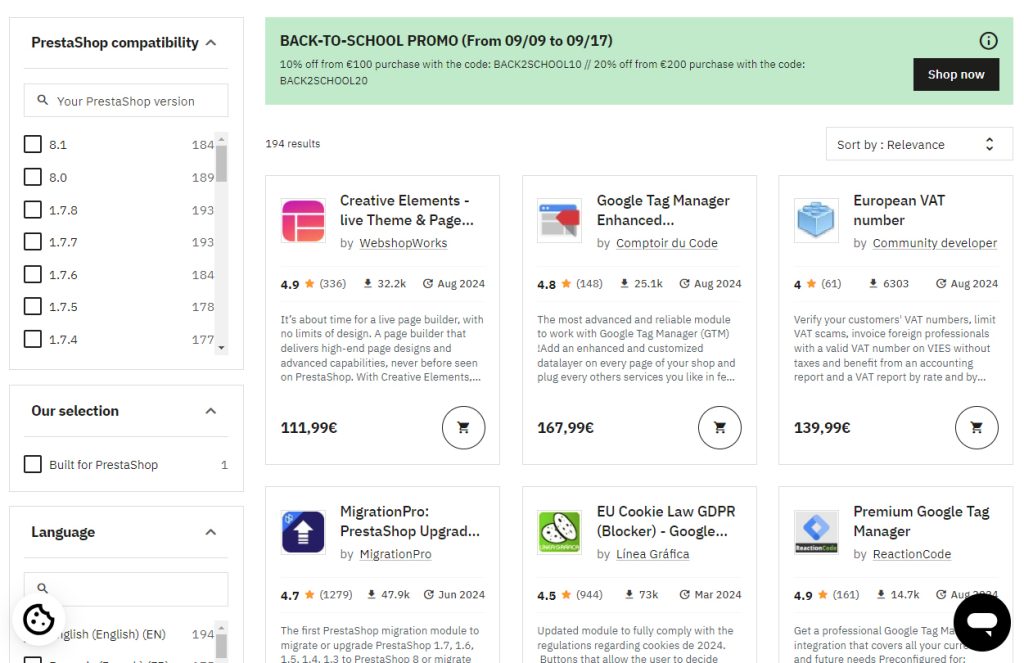
Detailed Analytics: The platform provides detailed analytics and reporting tools, helping you track your store’s performance, understand customer behavior, and make data-driven decisions to optimize your sales strategies.
Best For: Businesses seeking a highly customizable platform with a strong feature set and SEO capabilities.
OpenCart
OpenCart is a user-friendly and cost-effective eCommerce platform designed to help businesses set up and manage their online stores with ease. Known for its simplicity and efficiency, OpenCart is ideal for small to medium-sized businesses seeking an intuitive solution without breaking the bank.
Strengths:
‒Ease of Use: OpenCart offers a straightforward setup process and an intuitive interface, making it accessible for users with minimal technical skills. The platform’s user-friendly design helps you quickly get your store up and running.
‒Cost-Effective Solution: As an open-source platform, OpenCart is free to use. This makes it a budget-friendly choice for startups and small businesses looking to create an online store without significant upfront investment.
‒Built-In Features: OpenCart includes essential features like product management, order tracking, and customer management out of the box. It also supports multiple languages and currencies, making it suitable for businesses with international customers.
Weaknesses:
‒Limited Customization: While OpenCart offers basic customization options, it may not provide the same level of flexibility as more advanced platforms like Magento or PrestaShop. Businesses with highly specific needs might find it limiting.
‒Performance and Scalability: As your store grows, you might encounter performance issues with OpenCart, especially if you have a large inventory or high traffic. Scaling the platform may require additional technical adjustments and optimization.
Key Features:
‒SEO Tools: OpenCart includes built-in SEO features such as customizable meta tags, SEO-friendly URLs, and an integrated sitemap. These tools help improve your store’s search engine rankings and drive more traffic to your site.
‒Extensions and Themes: The OpenCart marketplace offers a wide range of extensions and themes, allowing you to enhance your store’s functionality and design. Whether you need advanced payment options or custom shipping methods, you can find relevant add-ons.
‒Multi-Store Capability: OpenCart supports managing multiple stores from a single admin interface. This feature is particularly useful for businesses operating multiple online shops or targeting different market segments.
Best For: Businesses needing a simple, cost-effective platform with basic SEO tools.
Weebly eCommerce
Weebly eCommerce is a user-friendly platform known for its simplicity and ease of use. Designed to help small businesses and entrepreneurs build their online stores quickly, Weebly offers a streamlined approach to eCommerce with an emphasis on ease of setup and management.
Strengths:
‒Intuitive Drag-and-Drop Interface: Weebly’s drag-and-drop builder allows users to create and customize their online stores effortlessly. This intuitive design makes it ideal for those with minimal technical skills, enabling quick setup and easy modifications.
‒Affordable Pricing: Weebly offers competitive pricing plans that include a range of features suitable for small businesses. This cost-effectiveness makes it a popular choice for startups and businesses looking to maintain a low budget while building their online presence.
‒Built-In eCommerce Features: Weebly’s eCommerce plans come with essential features such as product management, inventory tracking, and integrated payment processing. These built-in tools simplify the process of managing an online store and handling transactions.
Weaknesses:
‒Limited Customization Options: While Weebly provides a range of templates and customization options, it may not offer the same level of flexibility as more advanced eCommerce platforms. Businesses with unique design or functionality requirements might find these limitations restrictive.
‒Scalability Concerns: Weebly is best suited for small to medium-sized businesses. As your store grows, you might encounter limitations in terms of scalability and advanced features compared to more robust platforms like Shopify or Magento.
Key Features:
‒SEO Tools: Weebly includes basic SEO tools such as customizable meta tags, SEO-friendly URLs, and integrated sitemaps. These features help improve your store’s search engine visibility and attract organic traffic to your site.
‒Mobile Optimization: All Weebly templates are designed to be mobile-responsive, ensuring that your online store looks and functions well on mobile devices. This is crucial for reaching customers who shop on their smartphones and tablets.
‒Integrated Marketing Tools: Weebly offers built-in marketing tools, including email marketing and social media integration. These tools help you promote your store, engage with customers, and drive traffic to your site.
Best For: Small businesses and entrepreneurs needing an easy-to-use, cost-effective eCommerce platform.
GoDaddy eCommerce
GoDaddy eCommerce is an excellent choice among the best eCommerce platforms for small businesses in 2024. As part of GoDaddy’s suite of online store platforms, it provides a user-friendly and cost-effective way to establish an online presence with minimal hassle.
Strengths:
‒Ease of Use: GoDaddy eCommerce is known for its intuitive design, making it one of the most user-friendly eCommerce website builders. Its drag-and-drop functionality allows even those with minimal technical expertise to create and manage their online store effectively.
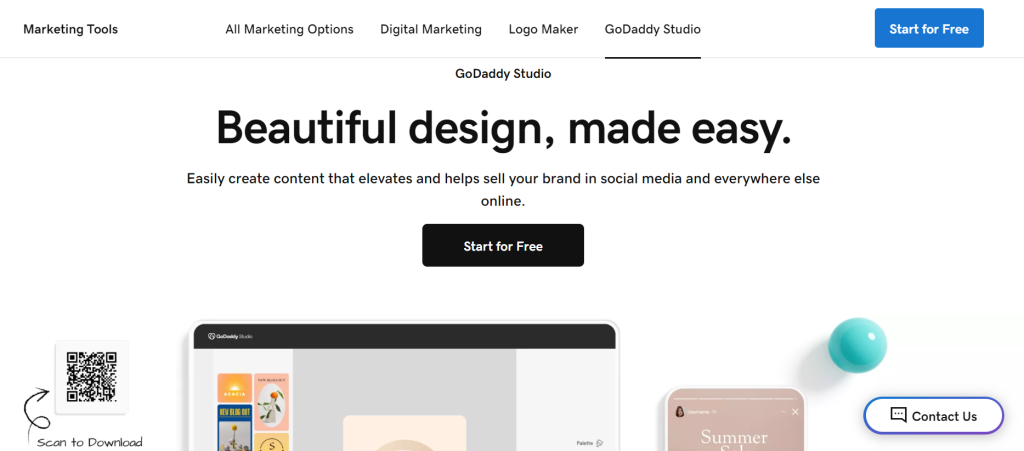
Affordable Pricing: With competitive pricing, GoDaddy offers a budget-friendly option for startups and small businesses seeking affordable eCommerce platforms. This makes it accessible to a wide range of entrepreneurs and small business owners.
‒Built-In Marketing Tools: GoDaddy eCommerce includes integrated marketing tools like SEO features and email marketing, which are crucial for boosting visibility and driving traffic to your store. These tools help businesses make the most of their eCommerce software.
Weaknesses:
‒Limited Scalability: While suitable for small businesses, GoDaddy eCommerce may not offer the advanced features or scalability required for larger operations or those with more complex needs. It is less ideal for businesses looking for scalable eCommerce platforms.
‒Basic Customization Options: Compared to other platforms, GoDaddy offers fewer customization options, which might limit users looking for more sophisticated design and functionality.
Key Features:
‒Integrated SEO Tools: GoDaddy eCommerce includes built-in SEO tools to enhance search engine visibility, crucial for businesses aiming to improve their online ranking and attract more customers.
‒Mobile Optimization: The platform ensures that all online stores are mobile-friendly, providing a seamless shopping experience on both smartphones and tablets, which is vital for businesses looking to capture mobile traffic.
‒Quick Setup: GoDaddy’s streamlined setup process enables businesses to launch their online stores quickly, making it an ideal solution for those needing a fast and straightforward eCommerce site builder.
Best for: Small businesses and startups needing an easy-to-use, budget-friendly eCommerce platform
Emerging Trends in eCommerce 2024
As we dive into 2024, several key emerging trends are shaping the future of eCommerce. Staying ahead of these trends can give your business a competitive edge and help you adapt to the evolving digital landscape. Here’s a look at some of the most significant eCommerce trends this year:
1. AI and Machine Learning
Artificial Intelligence (AI) and Machine Learning (ML) are transforming how businesses interact with customers. AI-powered tools enhance personalization, improve customer service with chatbots, and optimize inventory management. Machine learning algorithms analyze consumer behavior to predict trends and recommend products, creating a more tailored shopping experience.
2. Mobile Commerce
The rise of mobile commerce (m-commerce) continues to accelerate, with more consumers shopping via smartphones and tablets. Ensuring your eCommerce platform is optimized for mobile devices is crucial. Progressive Web Apps (PWAs) are gaining traction, offering fast, reliable, and engaging user experiences on mobile.
3. Headless Commerce
Headless commerce decouples the front-end and back-end of eCommerce systems, allowing for greater flexibility and customization. This approach enables businesses to create unique and dynamic shopping experiences while leveraging powerful back-end systems for operations and data management.
4. Subscription Models
Subscription-based business models are becoming increasingly popular. They offer a predictable revenue stream and enhance customer loyalty. Implementing recurring billing and membership features can help businesses build long-term relationships with their customers.
5. Omni-Channel Retailing
Omni-channel retailing ensures a seamless and integrated shopping experience across all channels, including physical stores, online platforms, and social media. Consistency in branding and customer experience across different touchpoints is essential for maintaining customer satisfaction and loyalty.
6. Social Commerce
Selling directly through social media platforms is on the rise. Social commerce leverages the power of social networks and influencer marketing to drive sales and engage with audiences. Integrating social media shopping features into your eCommerce strategy can boost visibility and conversions.
Conclusion
Choosing the right eCommerce platform is essential for leveraging emerging trends and ensuring your online store’s success. As we move into 2024, platforms like Shopify and BigCommerce lead with robust AI capabilities, mobile optimization, and integration with social commerce. WooCommerce and Magento offer advanced features for businesses with specific needs, while platforms like Wix and PrestaShop provide cost-effective solutions with essential functionalities.
When selecting an eCommerce platform, consider your business’s unique requirements, growth potential, and how well each platform aligns with current trends. Whether you prioritize AI and machine learning, mobile optimization, or omni-channel retailing, the right platform can help you stay ahead in the competitive eCommerce landscape.
